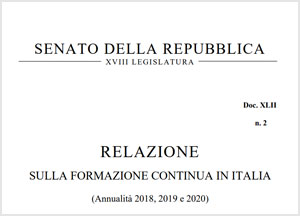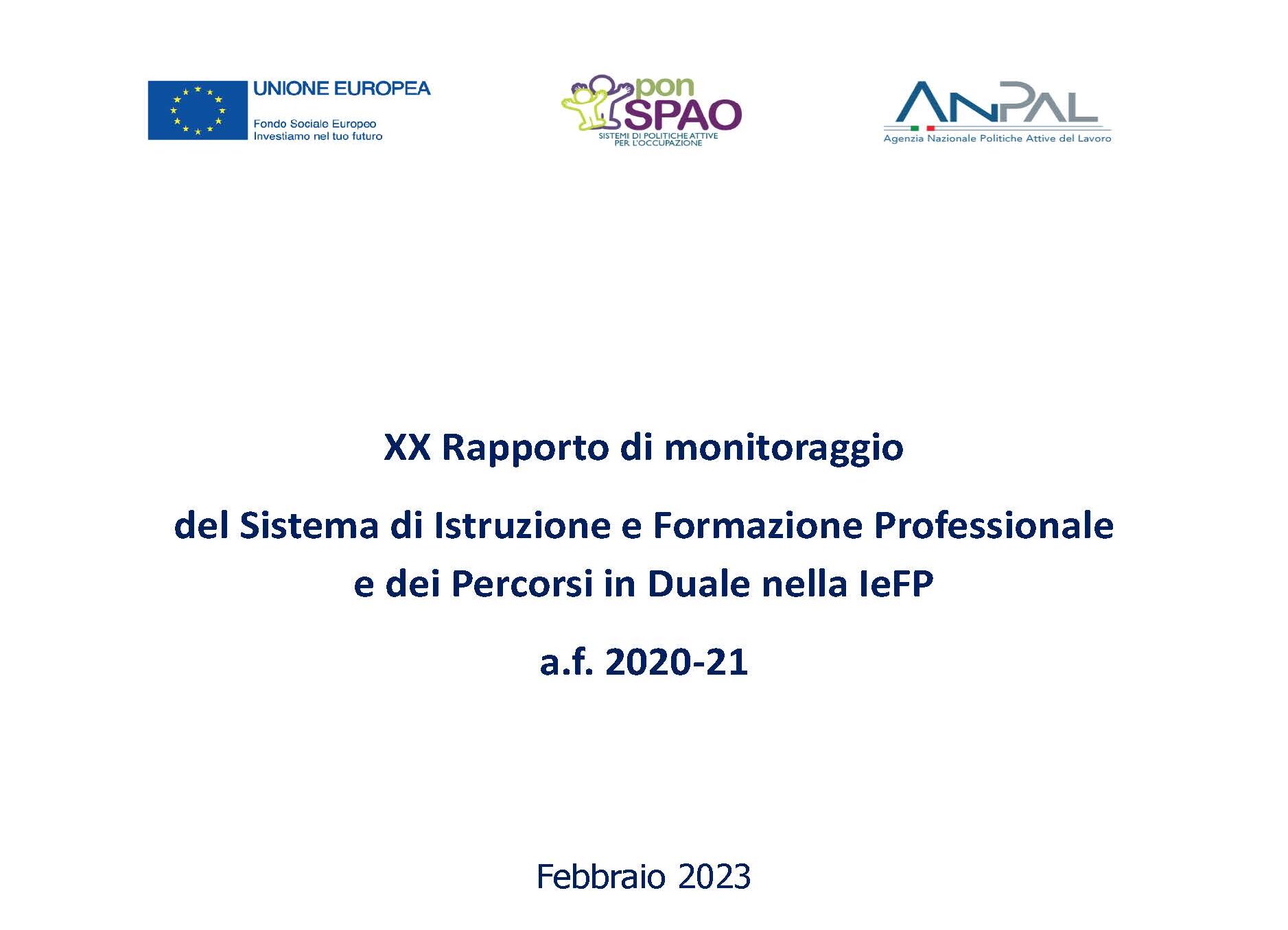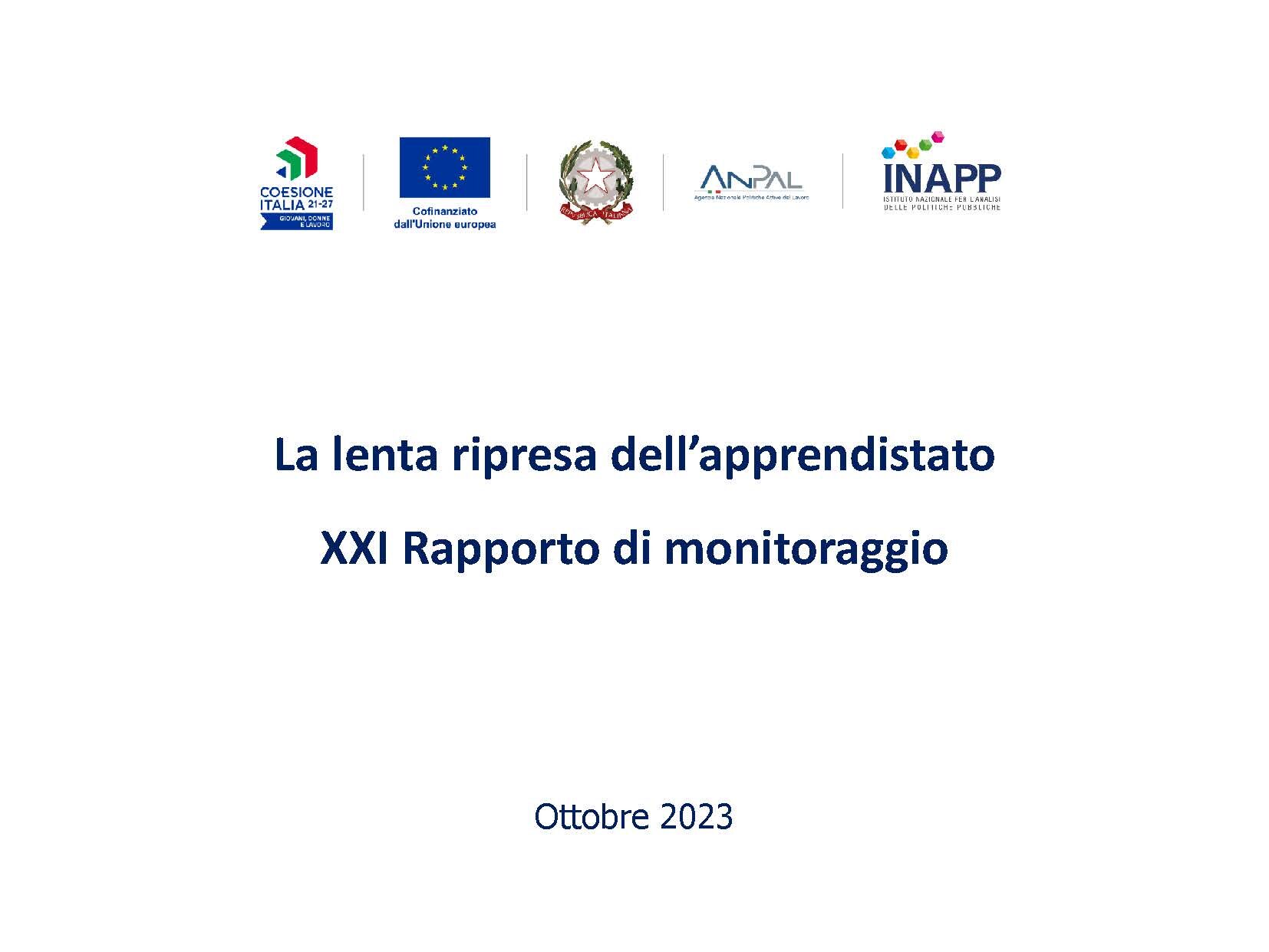This unit carries out analyses, studies and research on issues concerning basic training (IeFP and IFTS secondary and higher vocational education and training options) – also following the dual-mode approach – early school leaving, and skills within the long supply-chain of technical-vocational training. Research is carried out on apprenticeship and work-based learning issues. On top of that, analyses are carried out as regards adult continuing training and learning policies, also by means of recurring surveys (Inapp-INDACO and Inapp-OFP). Studies and research are carried out by this unit on educational offer quality assurance and accreditation systems, and ex-lege relations are defined with regard to vocational education and training, apprenticeship, continuing vocational training and lifelong learning. In its capacity as an institutional stakeholder, this unit participates in international networking Projects, including Eqavet and ReferNet, and represents the National Reference Point for quality.
Person-in-Charge: Emmanuele Crispolti
Secretariat: Giorgiana Ricci 06/85447406
[email protected]
The Education and Training Systems Unit consists of five research Groups:
1) Apprenticeship, work-based learning, and innovation for training – Person-in-charge: Silvia Vaccaro ([email protected]) – This group oversees the evolution of transition-related policies and of system innovations , also in the European and international context, with special attention to the employment of young workers and to the adoption of school/work alternation methodologies. In particular, this group is in charge of the following tasks: carrying out research work – also in comparative terms – in support of policy analysis, on the implementation of work-based learning in its multiple forms and different frameworks, beginning with governance mechanism analysis and collective bargaining evolution; conducting studies and testing on methodologies and tools used to develop skills on the workplace; on behalf of the Ministry of Labour and Social Policies, overseeing the drafting of the annual Apprenticeship Monitoring Report (pursuant to the law), and collaborating in drawing up the Parliament Report on the vocational training system (pursuant to law 845/78); in collaboration with Anpal, editing the annual Report on extra-curricular internships; overseeing the dissemination of training access opportunities, thereby facilitating mobility and transition processes through innovative equipment and technologies; carrying out scientific cooperation and networking activity with national and international universities and research institutions (Cedefop, OECD, etc.); providing scientific support to institutional stakeholders (Ministry of Labour, Ministry of Education, Regional authorities, etc.), social players and other reference stakeholders for the labour market and the vocational training system.
2) Initial training and dual system in leFP – Person-in-charge Emmanuele Crispolti ([email protected]) – This group oversees the following educational training systems which make up the “long supply chain of technical vocational training”: leFP, IFTS, ITS. On behalf of the Ministry of Labour and Social Policies, the Group is responsible for drafting the annual Monitoring Report on Education and Vocational Training and on dual curricula in leFP (as provided for by law), and it also collaborates in drawing up the Parliament Report on the Vocational Training System (Law no.845/1978); the group supports the Ministry of Labour and Social Policies in overseeing the relevant educational supply chains, and it also networks with institutional stakeholders (Ministry of Education, Istat, Cedefop, etc.) and other national and international research organizations; it carries out research work and in-depth studies on school dropout and early leaving from educational and training curricula, and on related measures to counter these phenomena; it oversees the issue of educational facilities accreditation and vocational training quality, with special reference to the EQAVET system and to the National Plan for quality assurance within the vocational education and training system (PNQ). It carries out surveys and analyses as regards matching education offer and skill demand on the labour market. It conducts studies and focused analyses as regards skills in the long supply chain, with a special focus on key skills in the European context.
3) Continuing vocational training and adult learning – Person-in-charge Roberto Angotti ([email protected]) – This group oversees educational training systems concerning continuing vocational training and adult learning. It carries out analyses, studies and research on policies related to continuing vocational training, adult learning and development of human capital, and on funding instruments aimed at developing workers’ skills in private sectors and in the Public Administration context (ESF, Interprofessional Funds, Tax Credit for Training 4.0, etc.); it is responsible for conducting Indaco-Imprese, Indaco-Adulti, and Indaco-PA surveys, Intangible Assets Survey, OFP survey, and it also cooperates with Istat to carry out the Continuing Vocational Training Survey (CVTS), and the Adult Education Survey (AES); on behalf of the Ministry of Labour and Social Policies this Group is in charge of drawing up the Annual Parliament Report on continuing training (article 66, Law no. 144/1999), and collaborates in drawing up the Parliament Report on the vocational training system (Law no. 845/1978); it provides support to the Ministry of Labour, and conducts scientific cooperation and networking activity with institutional stakeholders (Ministry of Education, Regional authorities, interprofessional Funds, etc.) and other national and international research institutions (Istat, Cedefop, OECD, etc.); it supervises issues concerning training supply and demand, training participation and adult upskilling and reskilling processes, age management and intergenerational learning, investments in training, knowledge, innovation and human capital by private companies and the public Administration, company intangible assets and knowledge management processes, Competence center and Digital Innovation Hub, sustainable development training and eco-innovative professional profiles, effects of company digitalization on continuing training system, bridging territorial gaps.
4) Key competences for employability in the technical-vocational training long supply chain – Person-in-charge Fabrizio Giovannini ([email protected]) – This group oversees the theme of training and assessment of strategic competences required to face lifelong personal and work challenges, both by conducting analyses and by following research-action routes on training policies and practices within the framework of the technical-vocational training long supply chain (leFP, IFTS, ITS). The approach followed is complementary with other research paths applied both by this Unit (Monitoring of the leFP/Dual system, Training and Accreditation Quality, Work Based Learning) and by the Institute (Atlas of Labour and qualifications as regards professional standards, PIAAC Survey, Poverty and poverty alleviation measures Unit as regards orientation issues). In particular this group performs the following tasks: studies and surveys on the adoption of key competences (soft skills) in the long supply chain, in terms of both demand (learners) and supply (trainers, training bodies); quality and quantity research and thematic insights – on a national and European level – on methods applied to adopt the skill approach in training processes; studies on the continuity and progressivitiy of training standards, their consistency with skill demand on the labour market, and transition systems among different supply systems; studies on the process of declination of national profiles according to local needs and the related local governance models.
5) Accreditation and training quality – Person-in-charge Laura Evangelista ([email protected]) – This group oversees the theme of educational institutions accreditation and vocational training quality, with special reference to the EQAVET system and the National Plan for Quality Assurance within the vocational education and training system (PNQ). It shares a number of operational guidelines with some other INAPP units. In particular, it carries out the following tasks : it acts as a National Reference Point for quality assurance in education and vocational training; it participates in activities conducted by European Reference Points, EQAVET European Network, and International work groups (promoted by the European Commission, Cedefop, ETF) aimed at discussion and exchange of innovative practices and methodologies concerning quality standards, such as self-assessment and Peer Review: it provides support to the Ministry of Labour and Social Policies in supervising the national framework for the accreditation system, and in PNQ monitoring and implementation; it is responsible for drawing up regular monitoring reports on accreditation systems and for updating the national database of training-accredited educational facilities.
In the spotlight


